9/23 Entertainment History
“The organ was sort of like the bridge. It covered the space between the notes when he’d hold a note. You can really hear it in ‘Magic Carpet Ride’. He had a percussive style like no other keyboard player I’ve ever heard and it stood out.”
~Steppenwolf bass guitarist Nick St. Nicholas
Discussing keyboardist Goldy McJohn

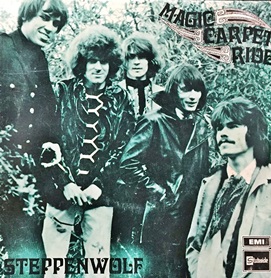
1968 – Steppenwolf released Magic Carpet Ride.
It was the lead single from the group’s The Second album, peaking at #3 in the U.S. and staying in the charts for 16 weeks, longer than any other Steppenwolf song.
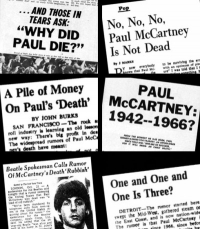
1969 – Paul McCartney was first rumored to be dead in an article in Northern Star, the Northern Illinois University newspaper, under the headline “Clues Hint At Beatle Death”.
The article claimed McCartney had been killed in a car crash in 1966 and had been replaced by a look-alike. Russell Gibb of WKNR-FM in Detroit picked up on the claim and the story went worldwide.
Other articles said clues to McCartney’s death could be found among the lyrics and artwork of The Beatles’ recordings. Clue hunting proved infectious and within a few weeks had become an international phenomenon.
And for some conspiracy theorists, it still is. Paul isn’t dead. Deal with it.
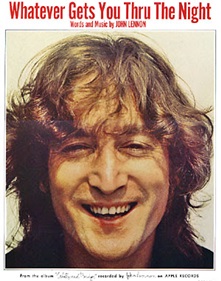
1974 – John Lennon released Whatever Gets You Through The Night.
The lead single from his Walls and Bridges album peaked at #1 on the Billboard Hot 100, making Lennon the last member of the Beatles to achieve an American #1 solo hit.
Rock Factoid: The recording featured Elton John on harmony vocals and piano. Elton bet Lennon that the song would top the charts, and such was Lennon’s skepticism that Elton secured from him a promise to appear on stage at one of his performances should the record indeed hit the top.
When the record did achieve that feat, Lennon appeared at Elton’s Thanksgiving performance at Madison Square Garden on November 28, 1974.
It was Lennon’s last major concert appearance.
MOVIE/TV HISTORY
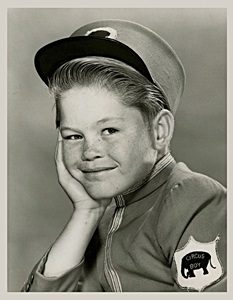
1956 – Circus Boy premiered on NBC.
The title of the series – which ran for two seasons – referred to a boy named Corky, played by Micky Dolenz (billed at the time as Micky Braddock).
I thought this episode, considering what Dolenz would do later as a member of The Monkees, was appropriate.

1969 – Marcus Welby, M.D. debuted on ABC. It would become the first show in ABC’s history to become the #1 show on television and aired for seven seasons.

1992 – Mad About You premiered on NBC. The series starred Paul Reiser and Helen Hunt and aired for eight seasons, garnering numerous awards including four Golden Globe Awards and twelve Primetime Emmy Awards.

1994 – The Shawshank Redemption premiered. The film was nominated for seven Academy Awards but remarkably came up empty.

1998 – Actress Mary Frann (best known for her role as Bob Newhart’s wife, Joanna, on the Newhart television series) died of a heart attack at the age of 55.
SPORTS HISTORY
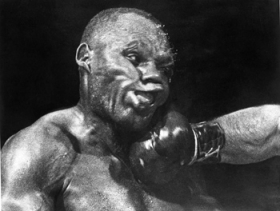
1952 – Rocky Marciano became the world heavyweight boxing champion by knocking out Jersey Joe Walcott in the 13th round with one of the most devastating punches in boxing history.
Compiled by Ray Lemire ©2005-2020 RayLemire.com / Streamingoldies.com. All Rights Reserved.
